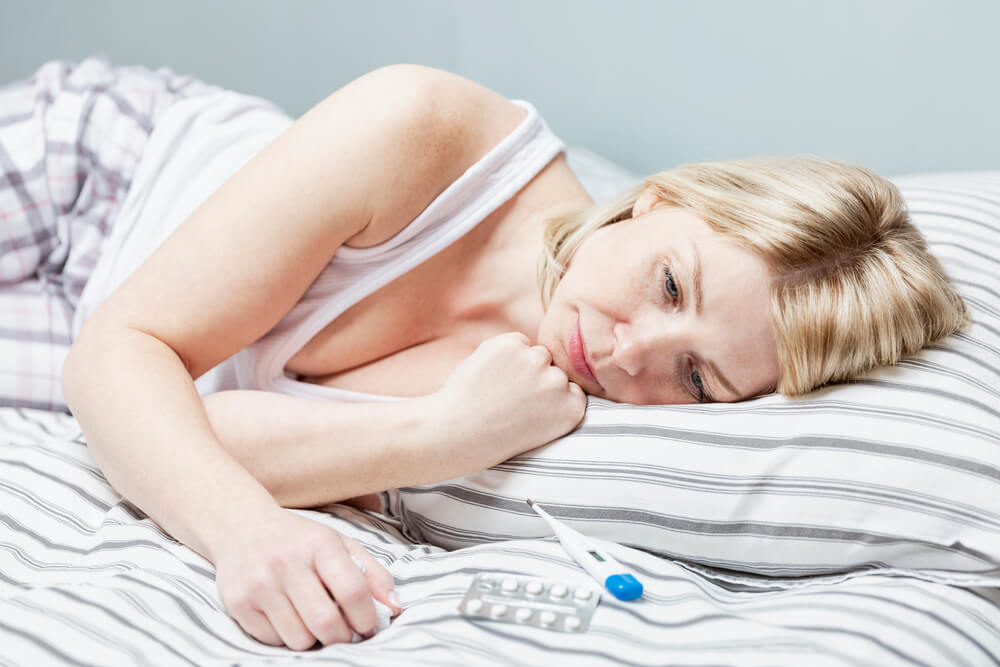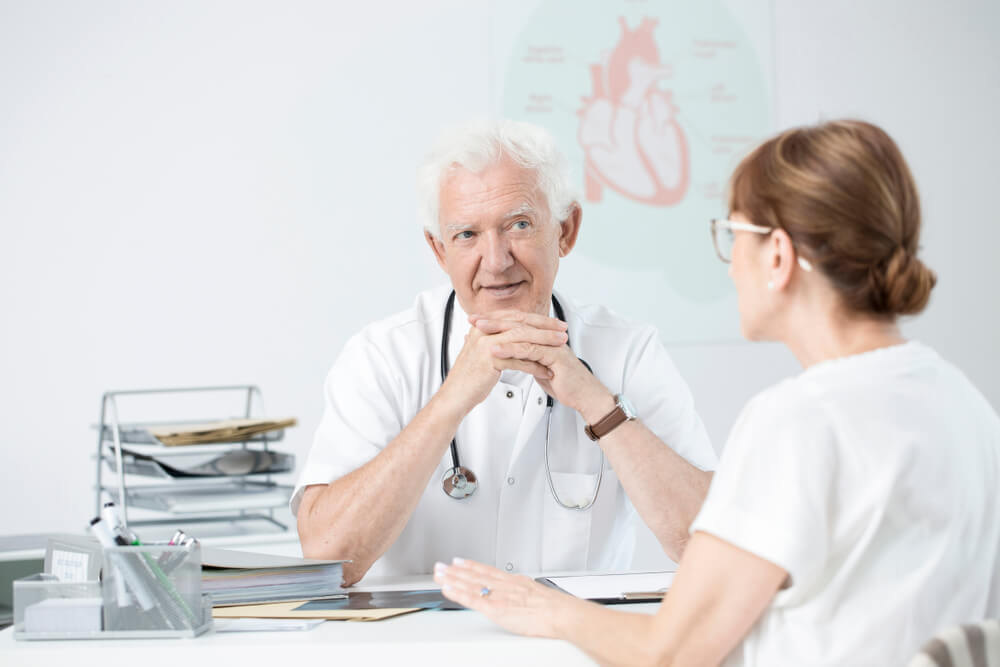Disclaimer: Please note that this blog is for educational purposes only, it includes general information on health-related topics. Women’s Healthcare of Boca Raton is giving medical advice to Patients Only. Follow this link to request an appointment with Dr. Ellman.
The menstrual cycle is a natural practice that women experience every month where they shed blood from their vagina. This lasts for up to seven days, but the duration can vary from person to person. However, one common symptom that develops in most women who are menstruating is fatigue, as they complain of persistent tiredness and lack of energy.
When this happens, we refer to this as “period fatigue”. Other symptoms may also appear, such as cramps and belly bloating, and these often interfere with a woman’s daily activities.
Here, we will discuss certain factors responsible for period fatigue, as well as the symptoms and treatment options.
What Causes Period Fatigue?
There remains a continuous debate on what is the cause of period fatigue. Different experts think period fatigue happens when there are hormone changes that the women’s ovaries produce – Estrogen and progesterone. During the initial half of the period cycle, estrogen increases but then the levels go down in the second half.
There is also an often decline in the level of serotonin in the second half of the cycle. This acts as a neurotransmitter, and it usually causes women to experience low mood and energy levels, leading to extreme fatigue during their period.
A few other causes that may be responsible for fatigue during the period include:
Inability To Sleep

A woman may find it hard to sleep as a result of period pain and mood change, causing her to be tired or exhausted the next day.
Low Iron Levels
When an individual bleeds during the menstrual cycle, it can result in iron-deficiency anemia. When the body doesn’t have enough iron, it cannot produce hemoglobin, an iron-rich protein that the red blood cells require to help transfer oxygen to the cells in the body.
Low iron levels can cause patients to feel tired on their period.
Food Cravings
An individual may experience certain cravings for food during the monthly cycle. A spike in blood glucose levels may occur when an individual consumes too much food, and so, menstrual fatigue develops.
Symptoms Of Menstrual Fatigue
A few symptoms that may indicate that a person has period fatigue be emotional, behavioral, or physical.
The below are some emotional symptoms:
- Anxiety and tension
- Inability to engage in social activities
- Depression
- Insomnia
- Irritability
- Mood swings
- Anger
Also, physical symptoms that women can experience are:
- Fatigue
- Muscular or joint pain
- Alcohol intolerance
- Diarrhea
- Breast tenderness
Treatment Of Fatigue During Period
Here are some ways to treat period fatigue:
Antidepressants
Doctors may recommend the use of antidepressants in certain cases, such as citalopram (Cipramil), fluoxetine (Prozac), and sertraline (Lustral). We refer to them as serotonin reuptake inhibitors (SSRIs).
They treat symptoms associated with physical and mental menstrual fatigue, and so, they help patients feel rested and less tired.
However, healthcare professionals still need to monitor individuals closely when they receive this type of treatment.
Birth Control Pills
Birth-control pills may be among a doctor’s prescription for regulating hormone levels. Doctors may tell an individual or recommend these pills from time to time while skipping the pill-free week.
Using these pills helps prevent fluctuations in hormone levels, and in turn, reduces the symptoms of extreme fatigue during the period.
Nonsteroidal Anti-inflammatory Drugs (NSAIDs)
NSAIDs are drugs that can reduce pain and inflammation, and it is common for OB-GYNs to prescribe ibuprofen in women with period fatigue.
This is because many patients have period pain that can keep them awake during the night, and the medication can help them get a restful sleep. As a result, they may not feel tired the next day.
Supplements
The American College of Obstetricians and Gynecologists suggests that people take 1200 milligrams (mg) of calcium per day, as medical experts believe that this can reduce physical and mental menstrual symptoms.
However, it is wise to visit a gynecologist during your period to check whether it is safe for you to take supplements, as these can sometimes interact with other medications.
Home Remedies for Menstrual Fatigue
A few home remedies may help in alleviating period fatigue at home:
Relaxation Techniques
Sleep can be difficult for some people during periods, and this can cause the level of fatigue, anxiety, and stress to increase the following day.
We recommend engaging in the following relaxation techniques for alleviating body and mind tension:
- Breathing exercises
- Taking a warm bath before going to sleep
- Gentle exercises
- Massages
- Mindfulness meditation
Room Temperature Adjustment
A person’s body temperature increases by 0.5 degrees celsius before their period, and this can be the cause of poor or disrupted sleep. Reducing the room temperature can help provide comfort and better sleep patterns, and so, this results in less fatigue the following day.
Aerobic Exercise
Our women’s health clinic recommends engaging in aerobic exercise if you have extreme fatigue during your period.
As a result, we at our OBGYN services in Boca Raton recommend engaging in aerobic exercise if you’re tired on your period. These include walking, swimming, cycling, and rowing, among others, and they help reduce fatigue and improve blood health and hemoglobin levels.
Alternative Therapies
According to a 2014 meta-analysis, there were suggestions that certain herbal remedies and acupuncture can help treat fatigue symptoms while a person is menstruating.
The research revealed that herbs, such as ginkgo biloba, were effective in reducing symptoms by 50% compared with not receiving treatment.
Seeing A Doctor

Some people may choose to use a gynecology service clinic to ease fatigue. However, you may need to see a doctor if you notice the following:
- There is no relief from home remedies
- You’re unable to engage in daily activities
- Other severe or debilitating symptoms
Further to that, women of childbearing age may experience severe symptoms, such as premenstrual dysphoric disorder (PMDD). This condition can cause severe fatigue, heart palpitations, forgetfulness, and abdominal bloating.
It is also best to see a health provider if severe fatigue persists after the menstrual cycle has ended, as it could indicate that patients have other conditions, including:
- Depression
- Chronic fatigue syndrome
- Irritable bowel syndrome
- Hypothyroidism
Prevention Period Fatigue
Although prevention may not be possible, these measures can regulate your energy levels throughout the month:
- Developing healthy sleep habits: It is best to go to sleep and wake up at the same time every day, as this helps regulate the hormones that induce sleep.
- Following a balanced diet: You have to stabilize your body’s blood sugar levels so there won’t be energy crashes and fatigue. You can do this by eating small and regular meals during the day.
- Staying hydrated: We always tell our patients to drink water at regular intervals, as dehydration is one of the causes of fatigue.
- Exercising regularly: Everyone should engage in physical activity. It boosts your cardiovascular health and blood circulation. Over time, you may feel less tired as well.
Book Your Appointment Today
When you’re extremely tired during your period, you may feel like staying in bed all day, as you won’t have enough energy to engage in your usual daily activities. However, there are various remedies that can help increase your energy levels, such as exercising, staying hydrated, and improving your sleep patterns.
If the problem persists or the remedies don’t work, it’s best to see a doctor.
You can call our clinic at (561) 273-7364 or (561) 465-8834 to book an appointment with us. We can evaluate your symptoms better and see if further treatment may help. We look forward to meeting you.

Dr. Ellman is a Board Certified OBGYN who established his medical practice in South Florida over 25 years ago. His office, Women’s Healthcare of Boca Raton, is located in Boca Raton, Florida at West Boca Medical Center. Dr. Ellman attended Albert Einstein College of Medicine of Yeshiva University, where he received his medical degree. He went on to intern at Beth Israel Hospital in Boston- an affiliate of Harvard Medical School- and continued his residency at North Shore University Hospital in Manhasset, New York- an affiliate of Cornell Medical School.
Dr. Ellman has practiced Obstetrics and Gynecology in the Boca Raton area since 1995. In addition to treating patients at West Boca Hospital, Dr. Ellman also treats patients through his own private practice, Women’s Healthcare of Boca Raton, located on the West Boca Medical Campus.

